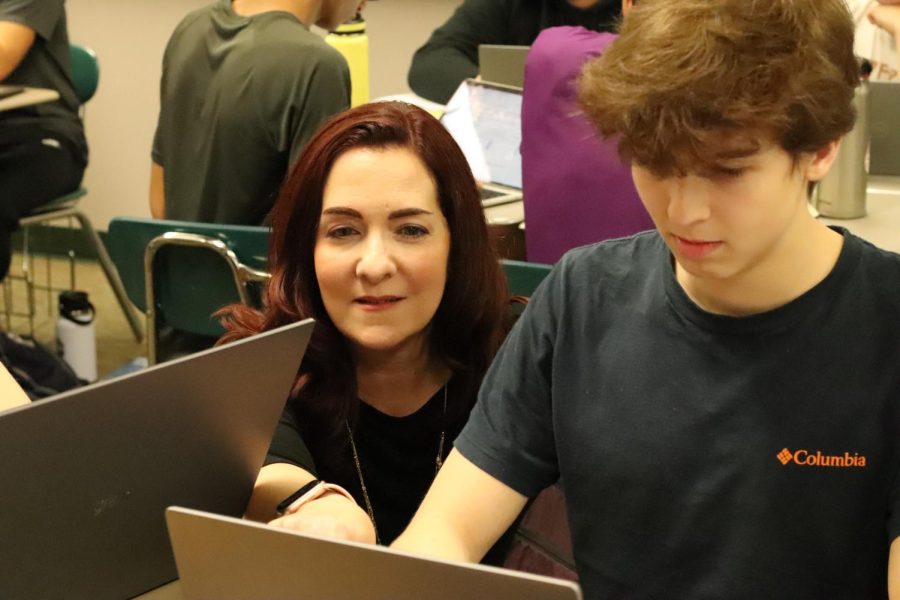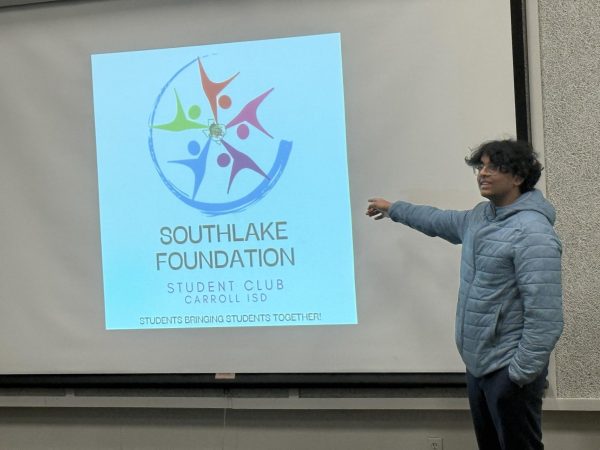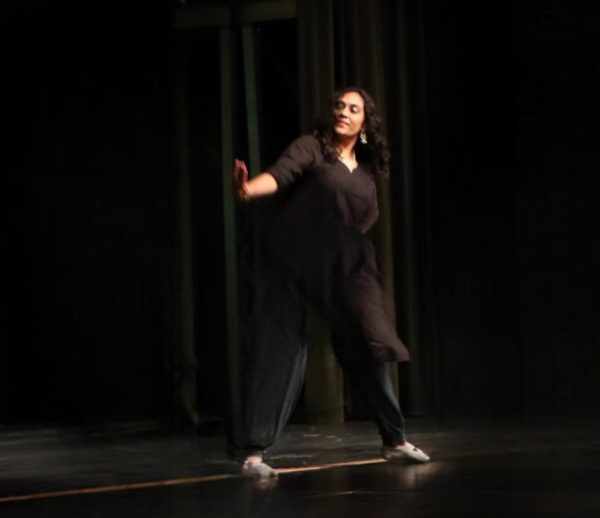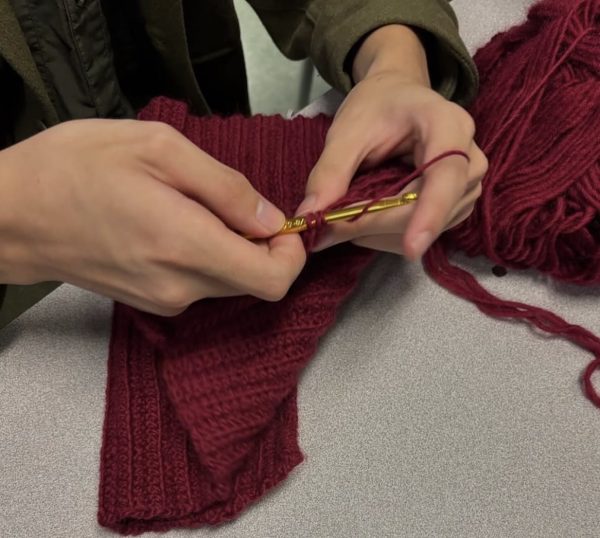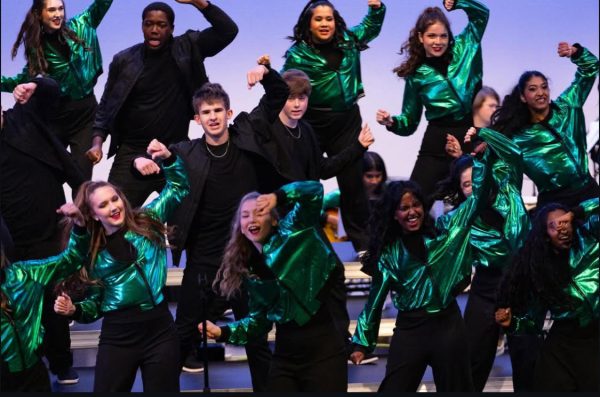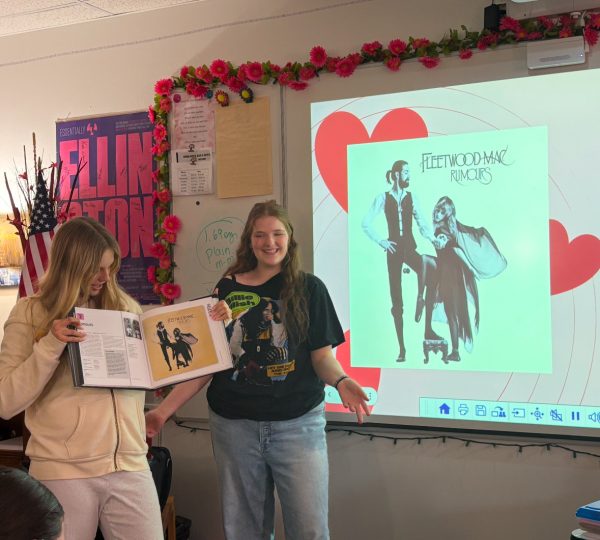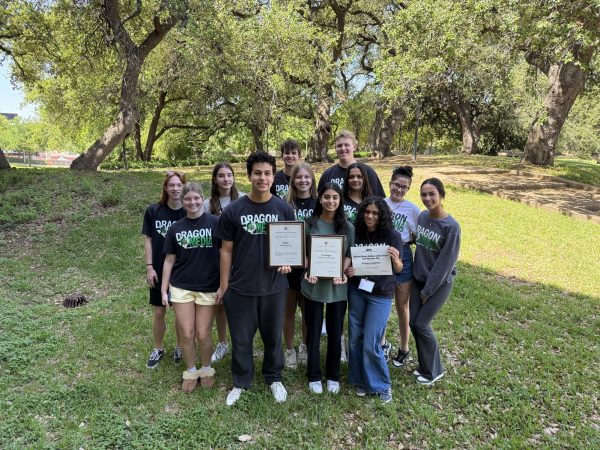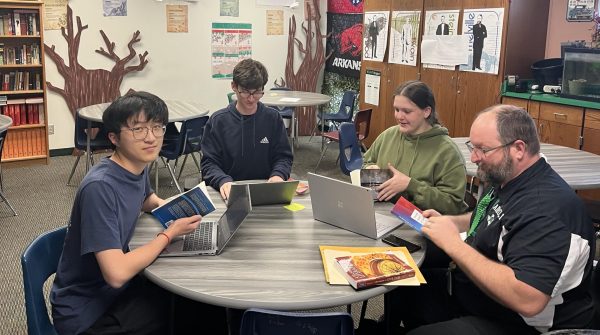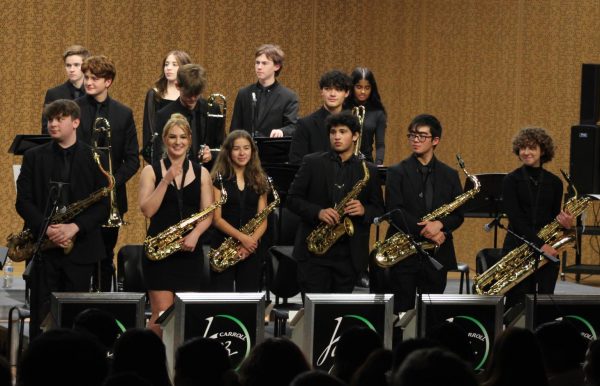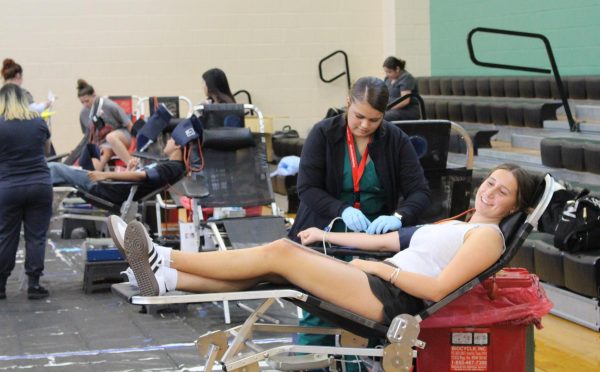Teacher Feature – Lunch with Erin Burkamp
Mrs. Erin Burkamp is a GT/AP English Literature Teacher, AP Seminar and AP Research teacher at Carroll Senior High School.
Q: Why did you start teaching?
A: So I’ve been teaching for, well in Texas 20 years, but total about 23 years. And I think that’s kind of a difficult question to answer just because I’ve never thought about being anything else. My mom is an educator, my aunt is an educator, and so it just sort of was in my family blood, but it was really not just even like a habit that, oh, my family’s doing this because so therefore, I wanted to do it, it was very much I felt like it was a calling. I got to college, majored in education and never switched. So it always felt like it was just the thing that I was going to be good at.
Q: What’s your favorite part about teaching?
A: My favorite part about teaching is absolutely 100% the kids. I live for the lightbulb moments of discovery when they unpack something that they didn’t know how to do before. And you see it click, I absolutely live for those moments. It’s the one reason I originally thought about going into educational leadership and getting my masters. But then it became very apparent that I was going to have to play with adults all the time. And so quite frankly, what makes the job enjoyable is truly the student and I felt like where my wheelhouse of where I am best. You know, where I am, I am serving into the best of my capacities in the classroom with the kids.
Q: What classes and grades have you taught?
A: I have taught eighth grade, [and] I have taught freshman and sophomore English. I’ve actually taught all four levels of high school English before but my primary focus for the past 17 years has been senior level English.
Q : What is your favorite unit to teach?
A: Oh, gosh, that’s like asking me to name my favorite kid. I like the poetry and short fiction units, to be really honest with you. I feel like when you have a theme, a thematic short fiction unit, you can look at some central ideas from different facets, from different stakeholder perspectives, from different authors, different cultures, and in poetry is just always like putting a puzzle together because it’s so figurative-language heavy, and getting kids to discover it, and especially getting kids not to hate it, I think is probably one of my favorite things.
Q: Have you ever tried writing?
A: Oh, absolutely. Yes. I mean, I keep a journal. I sometimes write poetry in my journal. I don’t know how good it actually is. But I do write frequently. And I write frequently, not only because I enjoy it. If I’m going to give actual writing instruction, I need to also be a student of writing as well. So I feel like that’s kind of an important function as a teacher.
Q: So what’s a skill that you’d recommend students to build up? Through your years of teaching, what have you noticed that kids really need to work?
A: Oh, absolutely it would be close, critical reading to think about thinking about reading, for sure, would be the first thing. Because very often, we sometimes go into reading without a specific purpose, right? And without considering the design of the text before we read, because there’s different purposes for reading, right? You read a book for pleasure, you read academic work for academic coursework, and it really is about getting students to think about the structure of those academic texts to make the reading faster and more efficient, I think is the most important thing. So thinking about thinking about your purpose of reading.
The second one, of course, is always practicing critical writing. I think writing for different purposes is such an applicable skill, not just in the academic world, but really in the corporate world as well. You’re writing good solid writing skills in order to continue a line of reasoning, to have a cohesive messaging, that is absolutely a skill that bears merit in the corporate world. You can look like an idiot very quickly in a not-well-constructed email, in terms of message delivery, et cetera. So there’s creative writing, there’s analytical writing, there is research-based business writing as well. So they’re, they’re just all different. My suggestion is to be flexible and to be open and receptive to the different methods in writing.
Q: So another really writing-heavy class, you teach AP Research and Seminar, so I’m curious as to why you chose to pick that up?
A: I was approached, actually, at the end of the 2021 school year by our previous principal, Mr. Duhon, about bringing the Capstone program and he said, I really think you’d be great at teaching the seminar class. And because it is essentially a research methods class, and those skills were already embedded in the things that I was doing anyway. And because I really am passionate about writing instruction, I thought, Oh, I absolutely can do this. And it was interdisciplinary, right? It wasn’t just confined to a creative writing course, it was very much something that had teeth. And when I looked at the scope and sequence of the course, I’m like, wow, this is a course that absolutely bears merit, more than any course that I’ve ever taught, to post-high school work, really. And I thought that I’d love to be a part of that valuable experience with students. It is probably my favorite class that I’ve taught thus far, to be honest with you. It’s super challenging. It’s hard as an instructor, but the conversations that occur, the growth that occurs is just such, it’s so rewarding.
Q: So has teaching any of these classes made you want you to go back to school? Or go back to college and learn something more?
A: Yes and no. While the idea of going back to college and getting my master’s degree or doing additional studies is intriguing, I also understand the logistical part of that would make it very difficult for me to be the effective teacher that I want to be here. Now, other people would probably disagree with that, right? In regards to ‘No, I mean, the work that you do in this master’s coursework would make you a better teacher.’ And I don’t doubt that. I think my capacity for being able to absorb yet another thing is something that I have to be honest with myself about.
Q: So another thing about you as a teacher is you have a lot of energy and excitement all the time. And I love that. So can you tell us more about the energy you bring to the classroom? How does that work?
A: I always think about showing up to be the kind of instructor that I would have wanted my own children to have. And I also walk in recognizing that you guys as students are someone’s child, someone’s child that they love very much they want the best for. And so I want to show up every day being what I would expect for my own kids. I think this job requires energy number one, and honestly, it to me, it’s so fun. I can’t, I generally cannot imagine being a person who works at a desk all day, that would be an energy vampire kind of a situation, quite frankly. Okay. And so I enjoy it. So the energy that I bring to the classroom is organic, it’s not manufactured, I genuinely am excited, this excited, to come to work every day.
Q: So that kind of takes me to the Bollywood dancing thing. Yeah, we’ve all seen you dance. You’re awesome at it.
A: Thank you.
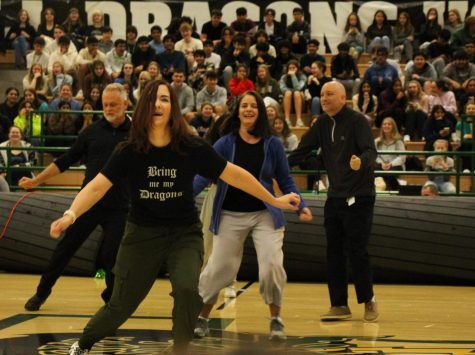
Q: So talk to us about how that worked?
A: Well, one of my students, Kirti, in my fourth block class asked me to participate. And I always believe that when kids invite you into their spaces, whether they’re your own kids, or whether they’re your kids at school, you have to go. When they invite, even if it’s uncomfortable, even if it’s something you’ve never done before, if a kid invites you into their space, you need to go. And I think that you know this campus sort of brings some unique opportunities for people to experience and appreciate and respect different cultures. And I’m like, ‘Okay, this is a cultural experience that I’m not familiar with, that you’re inviting me to participate in. So I’m going to’, and so I was happy to do it. It was actually really fun learning a different kind of a different discipline of dance, seeing the kids do things that obviously they’ve rehearsed for a while, and they’re so talented, and I was just glad to be a part of it. I was honored that they would even think to even ask me to do that and it was a lot of fun.
Q: All right, awesome. Thank you. So I guess my last question is what’s a cool fact that a lot of students don’t know about you? That you’d want to share with us?
A: Oh my gosh that’s an excellent question. I wish I had something dazzling to tell you there. Okay, I’m a holiday decorating fanatic. I have three Christmas trees. So I’m super-extra when it comes to Christmas. Yeah, so November 1 is Christmas. We get a day off from Christmas on Thanksgiving, which is, as far as I’m concerned, the pregame for Christmas. And then it’s Christmas until December the 25th. I love to cook. I’m originally from southwest Louisiana. So how I show my love and appreciation for people is by feeding them. So I am an avid cook. And I am an avid Christmas fanatic.
Aaryana is a senior at Carroll who has been part of Dragon Media for the past year. She loves to write a wide range of pieces but her favorites are student...
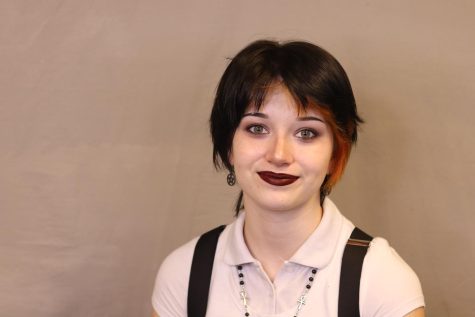
Rue Hames is a sophomore and this is their second year with the yearbook staff and Theater Tech team. They also might go to a cosmetology school for makeup...
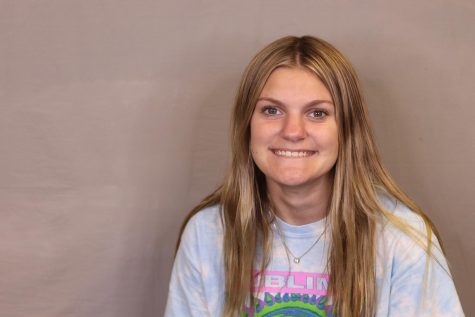
Molly Owens is a sophomore at Carroll High School and is in her second year with the Dragon Yearbook staff, this year as an Assistant Editor. In Molly’s...
